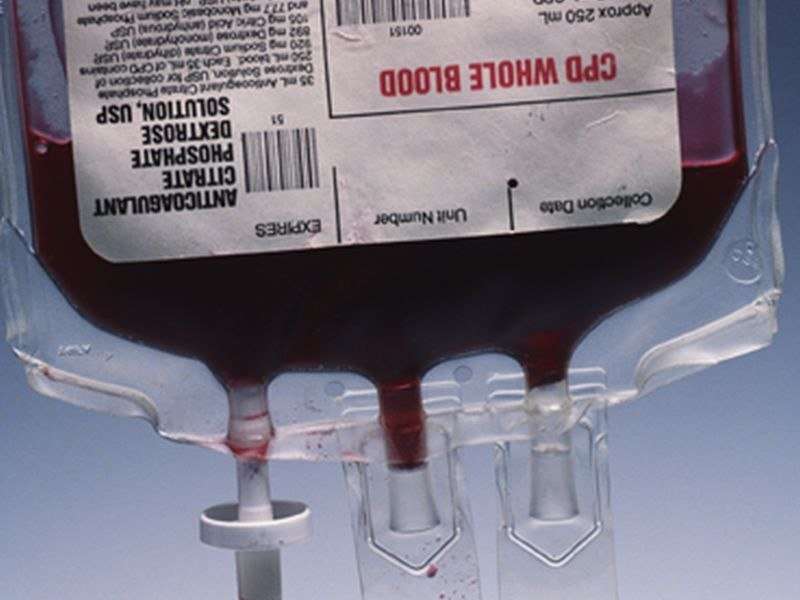Surgical blood transfusions tied to clot risk

(HealthDay)—Blood transfusions around the time of surgery may raise your risk for dangerous blood clots, researchers say.
A new study of U.S. patients found that nearly 1 percent who received red blood cells before, during or after surgery developed clots in the following month.
Clot risk doubled after one transfusion and increased with additional transfusions—tripling with two and quadrupling after three or more, the findings showed.
These clots—called venous thromboembolism—form in the deep veins of the legs or arms. They can break loose and travel to the lungs, causing illness and death.
"This study demonstrates that there may be additional risks to blood transfusion that are not generally recognized," said lead researcher Dr. Aaron Tobian, director of transfusion medicine at Johns Hopkins University, in Baltimore.
However, the study did not prove cause and effect.
If validated in future studies, the findings suggest a need to evaluate common transfusion practices, added Tobian.
Surgical patients frequently receive blood transfusions. It's thought the transfusions reduce inflammation caused by the operation, the study authors noted.
However, chemical and physical changes in these cells occur during storage, and may make them more likely to form clots, the researchers said.
Moreover, the investigators suspect that these altered red blood cells in combination with inflammation may further raise the risk for clots.
"The findings reinforce the need to limit blood transfusions to only when necessary," Tobian added.
Venous blood clots contribute to thousands of hospital deaths annually. And seven out of 10 may be preventable, according to background notes with the study.
Using a national surgical database, Tobian and his colleagues collected information on nearly 751,000 patients operated on in 2014. The patients were 44 to 69 years old, and more than 47,000 had at least one transfusion. The patients were followed for 30 days.
Clots that needed treatment developed in more than 6,300 patients, the researchers reported.
Dr. Allan Conway, associate program director of vascular surgery residency at Lenox Hill Hospital in New York City, agreed that doctors should prescribe blood transfusions only when absolutely necessary.
"There are other ways to reduce the risk of getting blood clots after a surgical procedure, and it is important doctors continue to take these measures," he said.
These include making sure patients walk soon after surgery, and prescribing low doses of blood-thinning medication to prevent clots from forming, Conway said.
The study was published online June 13 in the journal JAMA Surgery.
More information: Aaron Tobian, M.D., Ph.D., professor, pathology, medicine and epidemiology, director, transfusion medicine division, Johns Hopkins University, Baltimore; Allan Conway, M.D., associate program director, vascular surgery residency, Lenox Hill Hospital, New York City; June 13, 2018, JAMA Surgery, online. doi:10.1001/jamasurg.2018.1565 , jamanetwork.com/journals/jamas … /fullarticle/2683886
For more on blood transfusions, visit the U.S. National Heart, Lung, and Blood Institute.
Copyright © 2018 HealthDay. All rights reserved.















